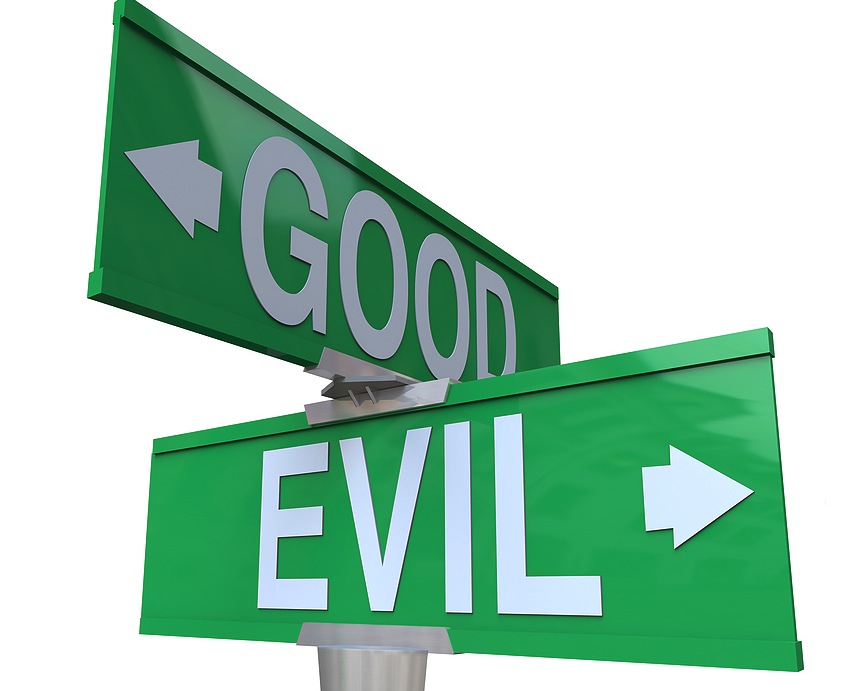
In a morally relativist age, it’s fair to ask: What is good? What is bad?
C.S. Lewis provides a helpful contrast: “Goodness is, so to speak, itself; badness is only spoiled goodness.” This points us back to Genesis; God’s original creation was ‘very good,’ so there was a spoiling of God’s goodness in the world.
But wasn’t the tree of good and evil in the original garden, placed there by God Himself? God commanded Adam and Eve not to eat from this tree. It was the only thing in the garden of Eden that was off limits. Was the tree of good and evil bad? Did God create an evil tree in the garden? I would argue that the tree of good and evil is morally neutral as a thing. God placed it in the garden for His own purposes. Perhaps he wanted to teach Adam and Eve how to use the free will He had given them. Perhaps it was a very expensive lesson in obedience that every generation following them would also pay. The key takeaway for our purpose is that the tree of good and evil required Adam and Eve to use discernment to make a wise choice. God made it as easy as possible, even telling them not to eat from the tree. All they had to do was trust Him and obey His words. Something they failed to do. In that sense, they’re not too unlike us. We just have a lot more things to evaluate. Oh, if life were only so simple that we only have a single tree of good and evil to avoid. Unfortunately, in a broken world, our choices are exponentially more voluminous. However, God has given us a way to wisely discern goodness in the world.
According to biblical scholar Wayne Grudem (1948 – ), the goodness of God means that God is the final standard of good, and that all that God is and does is worthy of approval. Thirteenth century theologian, Thomas Aquinas (1225-1274), defined good as a measure of the degree to which something contributes or deters us from our proper human end. If our purpose is to honor and glorify God, then something is considered good by the degree to which it helps us honor and glorify Him. God is perfectly good, and all that He is and does is perfectly good. God’s goodness includes His dealings with His creation, including us.
Below are some helpful questions to assess the goodness of a thing. This litmus test can be applied to anything. A behavior, an attitude, a belief, a relationship, a technology, a purchase, a job, school choice, a public policy, and so on.
- Is the thing worthy of God’s approval based on the full counsel of His revealed word?
- Does the thing help us honor and glorify of God?
- Does the thing uplift or protect that which God loves?
- Does the thing hinder, or protect us from, that which God hates?
- Does the thing align with and faithfully proclaim God’s truth?
- Is the thing consistent with God’s character and the fruit of the Spirit?
There is a negative expression for each of these questions (i.e., Is the thing unworthy of God’s approval? Does the thing dishonor God? Does the thing harm that which God loves? Does the thing promote that which God hates? Does the thing lie about or confuse God’s truth? Does the thing conflict with God’s character and the fruit of the Spirit?). I’ve chosen the positive formulation, but you can also use the negative expression.
Some things in this world are easy to discern. Reading the Bible – good. Robbing a bank – bad. However, many things are more difficult to discern. There is an element of good and bad in the thing, or perhaps the thing itself is morally neutral but may be used for either good or evil. In these situations, a more sophisticated evaluation is required.
I invite you to do an experiment. Take a decision you are trying to make and run it through this grid, consulting God’s word, along with prayer, as you do so. See what the process yields and let me know. Just like Adam and Eve, recognizing that wise choices must be made is the first, very important, step.
“Pay careful attention, then, to how you walk—not as unwise people but as wise — making the most of the time, because the days are evil.” Ephesians 5:15-16
